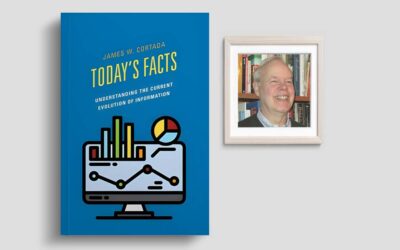Building Community Online; Tips for Librarians
Lauren Hays
We have all grown in our ability to engage online over the last couple of years. While many of us are back to attending in-person events, there remains a need for online community.
Online options for stakeholders allow you to:
- Reach a new population
- Create engagement on a specific topic
- Include people who are in different time zones and who cannot attend in-person events at a specific time
- Include people in different geographic locations
- Add opportunities for participation in events
I encourage you to think about what topics and activities may fit well online and what specific population may benefit from online engagement.
Once you decide the topic and your target population, use the following to start and grow your program:
- Determine the type of community you are supporting (Below are types of online communities from Thinkific)
-
- Interest. A group brought together by a common interest or passion.
- Action. Communities that come together to bring about change.
- Place. Communities within geographic boundaries. For example, your local neighborhood Facebook group that shares about the best eats in town.
- Practice or Profession. Members of a particular profession come together to share professional development tips and learn how to excel at their jobs. For example, veterinarians, or nurses forming a group to further their professional knowledge, or artist groups where members join to master their craft
- Identify key stakeholders: these individuals can be champions for the event/group and help with recruitment
- Plan events
- Encourage sharing: it is important that stakeholders feel part of the event
- Promote the community: market the events and share how individuals can engage
- Keep people involved: consider how individuals can be involved outside of specific events
These tips may feel abstract so let’s apply them to a specific situation.
You decide that you want to create an online community for your organization on the topic of genealogy. Your library has many resources on genealogy, but you have noticed that the use of the resources has dropped off over the last two years.
This group will be an interest group; the people will be brought together because of their shared interest in genealogy. There are a few individuals who are regular users of the genealogy resources that you ask to be involved in the online events. These individuals can share their stories and explain how they use the resources.
You decide to host an online event on how to use a specific genealogy database. During the event you ask attendees to share what they are looking for and you use their interests as example searches.
At the end of the event, you tell people about future events—and share that there are social media outlets people can follow to stay connected, with tips for using the genealogy resources.
Online communities will continue to play an important role in our work as librarians. I hope you all find opportunities to engage with individuals in productive ways online.
Additional Resources
Lauren Hays
Lauren Hays, PhD, is an Assistant Professor of Instructional Technology at the University of Central Missouri, and a frequent speaker on topics related to libraries and librarianship. Her professional interests include information literacy, educational technology, library and information science education, teacher identity, and academic development. Please read Lauren’s other posts about skills for special librarians. And take a look at Lucidea’s powerful integrated library systems, SydneyEnterprise, and GeniePlus, used daily by innovative special librarians in libraries of all types, sizes and budgets.
Similar Posts
The Importance of Professional Networking: Tips for Special Librarians
For many special librarians, the idea of professional networking can feel daunting, especially for those who thrive in quiet, research-driven environments. Lauren Hays shares her journey from reluctant networker to engaged community member, offering practical tips to help you build authentic professional relationships that benefit both you and your field.
Interview with the Author: Jim Cortada on Today’s Facts and the Evolution of Information
Dr. James Cortada, historian and senior research fellow at the Charles Babbage Institute, explores the history of information in his forthcoming book. By examining how information has been created, organized, and used over time, Cortada reveals patterns that continue to shape modern librarianship and knowledge management.
The Complicated Feelings Librarians May Have About AI
GenAI will affect how we do our work and the type(s) of work we engage in. In navigating the transformative potential of GenAI, we should engage in reflective practice that centers on our core professional values.
Recommended AI Literacy Frameworks for Special Librarians
These frameworks provide insights and approaches to help you determine the best ways to address build and promote AI literacy in your specific context.




Leave a Comment
Comments are reviewed and must adhere to our comments policy.
0 Comments